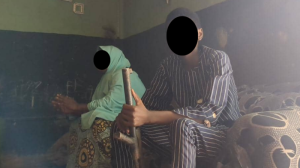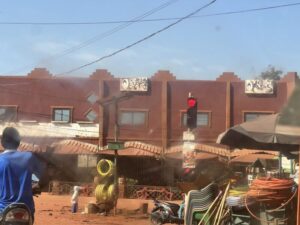Reporters at a pitch meeting held by the Wole Soyinka Centre for Investigative Journalism (WSCIJ) on Thursday, 11 August 2022 were tasked to focus on reporting government activities at the sub-national levels. The meeting heralded a six-week mentoring for the 15 reporters under WSCIJ’s Collaborative Media Engagement for Development, Inclusion and Accountability (CMEDIA) project supported by the MacArthur Foundation.
In his introduction, Samson Ademola, a Programme and Research Officer at WSCIJ, noted that the state and local government gets 49.6 per cent of the national revenue generated according to 2020 data. He observed the need for the media to investigate sub-national activities, hence, the CMEDIA project.
Femi Folorunso, Development Officer, Creative Scotland, shared some tips on investigating sub-national issues with the reporters. He noted that the assumption that every story needs to be on a national scale is one of the flaws of journalism in Nigeria. He urged reporters to investigate the relationship between local and state governments to repair the inherently flawed reportage and ignorance of issues at these sub-national levels. According to him, journalists have the duty of scrutinising the very structure of governance at the local government level.
Adesola Ayo-Aderele, a media consultant, observed the high rate of attacks on journalists. She advised the journalists to liaise with their colleagues and friends to get first-hand information about communities. She enjoined journalists to be discreet with the usage of high-end gadgets on the job while staying alert. She advised that important documents should be backed up to a safe account in case of loss or theft.
Ajibola Amzat, Managing Editor, International Centre for Investigative Reporting (ICIR), took the session on leveraging data for evidence-based investigative reporting. He enunciated the great importance of data in investigative and accountability reporting. He advised the journalists to source data first before going to the field because this would help shape the investigation. Amzat referred the journalists to non-governmental organisations and government parastatals in their search for data, adding that they can also use the Freedom of Information Act (FOIA) to request data. According to him, sourcing for data amounts to about 40% of investigative journalism.
Motunrayo Alaka, the Executive Director/CEO of WSCIJ, stressed that the CMEDIA project is focused on sub-national accountability issues. She encouraged the journalists to collaborate with local journalists in communities rather than depend on fixers. She said it would help strengthen relationships with local journalists and give them more visibility.
The meeting also featured a breakout session where the resource persons and mentors met their mentees to review the story ideas they had pitched and gave feedback.



